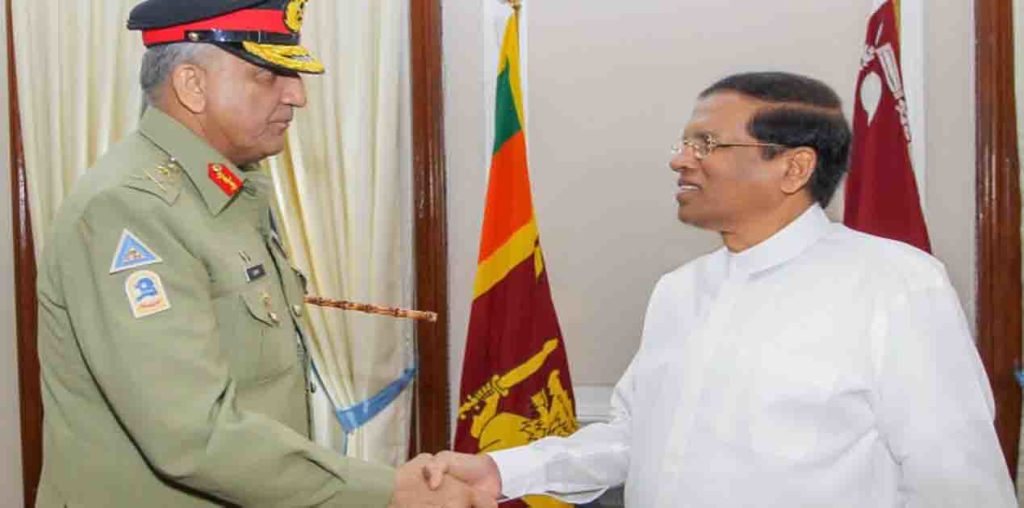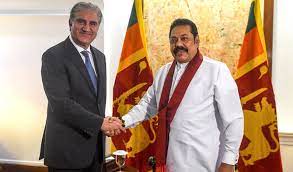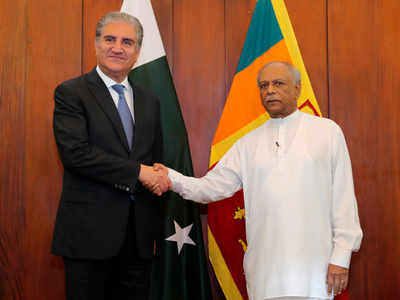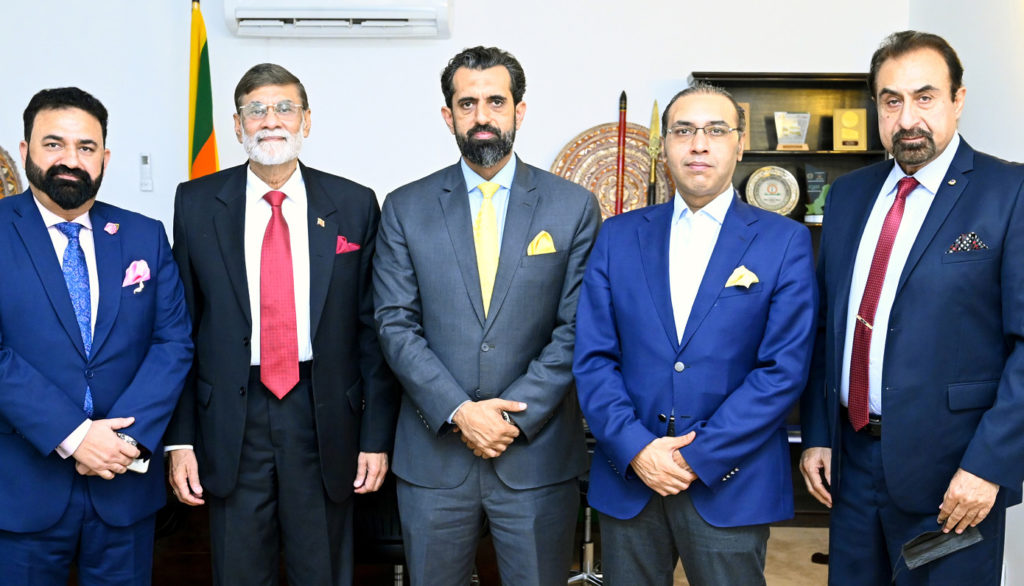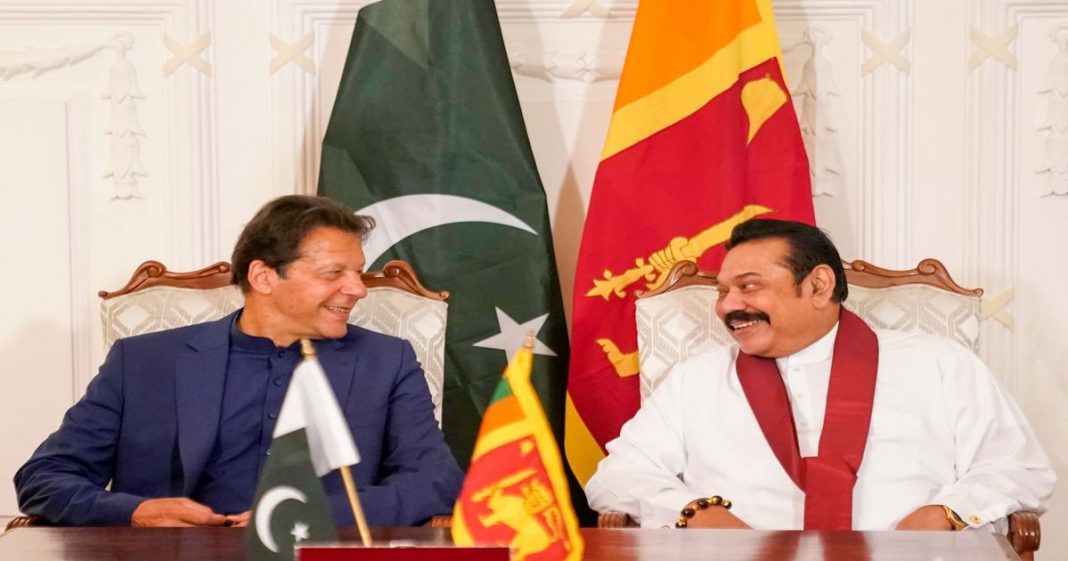
By Prof. Engr. Zamir Ahmed Awan
The island has had a long history of engagement with modern international groups: it is a founding member of the SAARC and a member of the United Nations, the Commonwealth of Nations, the G77, and the Non-Aligned Movement.
Sri Lanka got independence from the British on February 4, 1948 and this day is celebrated with true spirit and joys every year. Pakistan is a close friend of Sri Lanka, also shares the celebrations and enjoys them equally.
Sri Lanka is an island country in South Asia. It lies in the Indian Ocean, southwest of the Bay of Bengal, and southeast of the Arabian Sea; it is separated from the Indian subcontinent by the Gulf of Mannar and the Palk Strait. Sri Lanka shares a maritime border with India and the Maldives. Sri Jayewardenepura Kotte is its legislative capital, and Colombo is its largest city and financial center. It is formerly known as Ceylon, and officially the Democratic Socialist Republic of Sri Lanka.
Sri Lanka’s documented history goes back 3,000 years, with evidence of prehistoric human settlements that dates to at least 125,000 years ago. It has a rich cultural heritage. The earliest known Buddhist writings of Sri Lanka, known collectively as the P?li canon, date to the fourth Buddhist council, which took place in 29 BCE. Sri Lanka’s geographic location and deep harbors have made it of great strategic importance, from the earliest days of the ancient Silk Road trade route to today’s so-called maritime Silk Road. Because its location made it a major trading hub, it was already known to both Far Easterners and Europeans as long ago as the Anuradhapura period.
The country’s trade in luxury goods and spices attracted traders of many nations, which helped to create Sri Lanka’s diverse population. During a period of the great political crisis in the Sinhalese kingdom of Kotte, the Portuguese arrived in Sri Lanka (largely by accident) and then sought to control the island’s maritime regions and its lucrative external trade. Part of Sri Lanka became a Portuguese possession. After the Sinhalese-Portuguese war, the Dutch and the Kingdom of Kandy took control of those areas.
The Dutch possessions were then taken by the British, who later extended their control over the whole island, colonizing it from 1815 to 1948. A national movement for political independence arose in the early 20th century, and in 1948, Ceylon became a dominion. The dominion was succeeded by the republic named Sri Lanka in 1972. Sri Lanka’s more recent history was marred by a 26-year civil war, which began in 1983 and ended decisively in 2009; when the Sri Lanka Armed Forces defeated the Liberation Tigers of Tamil Eelam.
Sri Lanka is a multinational state, home to diverse cultures, languages, and ethnicities. The Sinhalese are the majority of the nation’s population. The Tamils, who are a large minority group, have also played an influential role in the island’s history. Other long-established groups include the Moors, the Burghers, the Malays, the Chinese, and the indigenous Vedda.
The island has had a long history of engagement with modern international groups: it is a founding member of the SAARC and a member of the United Nations, the Commonwealth of Nations, the G77, and the Non-Aligned Movement.
Sri Lanka is the highest-ranked South Asian nation on the Human Development Index and has the second-highest per capita income in South Asia.
Pakistan attaches high importance to its relations with Sri Lanka. PM Imran Khan made his first visit to Sri Lanka in 2021. The two-day visit to Colombo, during which Imran Khan and Sri Lankan Prime Minister Mahinda Rajapaksa discussed cooperation across a variety of strategic areas, signifies Islamabad’s intention to work with Sri Lanka for expanded political, security, and economic partnerships in the Southern Asian region.
Pakistan and Sri Lanka have historically enjoyed a conflict-free and relatively stable relationship. While their cultural affiliations and diplomatic cooperation in multilateral forums had initially undergirded their bilateral ties, their economic and defense partnerships have further bolstered their relations since the turn of the 21st century. Moving forward, Pakistan and Sri Lanka can engage on an even broader and deeper level to enhance their strategic partnership and grow their combined political power in South Asia. However, their ties will be subject to Sri Lanka’s ability to balance its politico-economic relations with its larger and historically more important neighbor, India, and Pakistan’s commitment to its defense and economic cooperation with Sri Lanka.
Cultural Connections and Diplomatic Cooperation
The Pakistan-Sri Lanka relationship is rooted in shared cultural ties and diplomatic cooperation. Since Pakistan hosts ancient relics and architecture central to Buddhist heritage in the Punjabi city of Taxila, Buddhist-majority Sri Lanka has held regular exhibitions of the “Gandhara Art of Pakistan,” borrowing the sacred Buddhist relics on the anniversaries of Lord Buddha. Interestingly, following Imran Khan’s suggestion, Colombo revoked the directive on forced cremation of COVID-19-affected Muslims immediately after Imran Khan’s visit, suggesting the Lankan government’s deference to the Pakistani prime minister and international criticism.
Pakistan and Sri Lanka have also historically cooperated at international forums. Both countries were members of the non-aligned movement (NAM), with Pakistan becoming a member in 1979. Sri Lanka, amongst other smaller South Asian nations, has also supported the UN resolution for a nuclear-weapons-free zone in South Asia following India’s 1974 nuclear tests. Additionally, during Sri Lanka’s 25 years of civil war, the Pakistani Cricket Board supported Sri Lankan cricket by sending its cricket team to the island. Commensurably, despite the 2009 terrorist attack on the Sri Lankan cricket team, the Lankan Cricket Board continued to send its team to Pakistan post-2017. Similarly a recent isolated incident in Sialkot could not harm the warmth of Pakistan- Srilankan bilateral relations.
Lastly, Pakistan has consistently voted against the United Nations Human Rights Council resolution on investigating the Lankan government’s military operations against Sri Lanka’s Tamil rebel groups. This may be one of the most prominent aspects of Pakistan’s diplomatic support of Sri Lanka and might also have been a factor in Colombo’s neutral position on the Kashmir issue between India and Pakistan.
Defense and Security Relations
Although Pakistan is not involved in the Indo-Pacific strategy or other initiatives to promote strategic ties with smaller South Asian states, the shared diplomatic stance of Pakistan and Sri Lanka on numerous regional security issues of South Asia led both to advance bilateral defense relations.
Sri Lanka and Pakistan, as most small continental South Asian states, share territorial security concerns vis-à-vis India on varying levels. Considering both Sri Lanka’s northern region and India’s southern region host significant Tamil populations, Colombo feared an Indian invasion to integrate its northern region with India’s southern Tamil-populated areas post-independence. Over the years, New Delhi has pressured Colombo to grant political and economic rights to the Lankan Tamils. In the 1950s, the fear of India might have initially propelled Sri Lanka to partner with Britain and the United States and at the same time make mutual defense and non-aggression agreements with neighboring states.
Pakistan and Sri Lankan defense relations were realized during the 1971 crisis in East Pakistan when India blocked West Pakistan’s overflight through the Indian airspace and Sri Lanka stepped in and granted the Pakistani civilian and military airplanes stopover and landing rights. Additionally, counter-insurgency and counterterrorism cooperation have also strengthened Pakistan-Sri Lanka bilateral defense ties as both countries have had experience in leading counterterrorism operations on their respective soil. Pakistan, among other countries, supplied the Sri Lankan government with military hardware and military training support to defeat the Liberation of Tigers of Tamil Eelam (LTTE), a separatist group focused on creating a separate state for Sri Lanka’s Tamil population. Four decades later, when Pakistan itself was engulfed in terrorist strikes nationwide, it reportedly sought Sri Lankan support for training its military on counter-insurgency operations.
The Pakistan-Sri Lanka fight against domestic militancy paved the way for intensifying bilateral defense cooperation. In 2016, Pakistan signed a defense agreement with Sri Lanka to provide Colombo with eight JF-17 fighter aircraft. Pakistani and Sri Lankan armies and naval forces have also regularly interacted through port calls, military and naval training and exercises, and defense workshops and seminars. In the recent high-level visit to Colombo, the Pakistani premier offered a USD 50 million credit line to Sri Lanka to further enhance defense and security partnerships.
Nonetheless, Sri Lanka has generally avoided taking sides and entangling in military conflicts between India and Pakistan or strategic competition between India and China or China and the United States. The Sri Lankan government’s cancelation of Imran Khan’s planned speech in the Lankan Parliament earlier this year might be an indication of Colombo’s impartiality and attempt to avoid antagonizing India, it is more powerful neighbor and chief economic partner.
Developing Bilateral Economic Ties
Another important aspect of Pakistan-Sri Lanka ties is their bilateral trading relation. Pakistan has Free Trade Agreements (FTA) with China, Malaysia, and Sri Lanka, and only with Sri Lanka does it happen to have a trade surplus. However, despite the 2005 FTA, Islamabad and Colombo have failed to expand their bilateral trade on a larger scale. For example, the bilateral trade between Pakistan and Sri Lanka grew only marginally from USD 180 million in 2004 to USD 460 million in 2018. Reportedly, the removal of harmful trade barriers could take the bilateral trade up to USD 2.7 billion. In February 2021, commerce secretaries from both sides agreed to revive the Joint Working Groups (JWGs) to address technical impediments to bilateral trade and effectively implement the FTA.
Although the financial value of bilateral trade appears to be minimal, the diplomatic significance of the FTA and the JWGs indicates continued desire and potential for strengthening economic relations. Imran Khan’s recent talks with Sri Lanka’s prime minister have further animated this mutual desire to expand trade, tourism, and investment.
Pakistani officials have advised Sri Lanka to participate in the China-Pakistan Economic Corridor (CPEC) to improve regional economic connectivity with Central Asia through transit routes in Pakistan. However, this is unlikely in the short term since Pakistan is yet to develop an efficient road and rail network for continental trade with the Central Asian Republics. Instead, Colombo may be better served to invest in the special economic zones under CPEC. It may be worth mentioning here that the present High Commissioner of SriLanka in Pakistan is striving for complimenting Pakistan’s desire for enhancing the bilateral trade.
Conclusion
Defense and counterterrorism cooperation and the free trade agreement form the backbone of the Pakistan-Sri Lanka relationship. Colombo’s enhancing security partnership with Islamabad, despite its broader and deeper political and economic relations with India, illustrates Sri Lanka’s ability to successfully navigate between the South Asian rivals. The recent premier-level visit demonstrated that government-to-government interaction could remove many of the bottlenecks in political, security, economic, and cultural sectors. To further expand bilateral relations, both countries should ensure the effective implementation of planned agreements, promote people-to-people and business-to-business interactions, host regular cultural and educational exchanges, and develop foreign investment-friendly conditions and policies. The progress on these aspects of the relationship may however remain stagnant due to Islamabad’s lack of a focused policy toward smaller South Asian states and Sri Lanka’s difficulty in balancing its relations with Pakistan and India.
Sri Lanka has the highest literacy rate in this region. Pakistan may benefit from its experience and policies to promote education. Sri Lankan tourism is another area, which Pakistan may also learn from them. Sri Lanka has attracted foreign investment successfully, we may also follow their module for attracting investment and industrialization. Sri Lanka’s experience to overcome extremism, intolerance, and fighting against terrorism is also a success story for us. There exists a huge potential to learn from each other’s experiences and collaborate for mutual interests.
Availing this opportunity, the people of Pakistan express heart-feeling congratulation to the Government and people of Sri Lanka on the occasion of the Independence festival and equally share the happiness and joys of the celebrations.

The writer is a Sinologist (ex-Diplomat), Editor, Analyst, Non-Resident Fellow of CCG (Center for China and Globalization), National University of Sciences and Technology (NUST), Islamabad, Pakistan. He can be reached at awanzamir@yahoo.com

